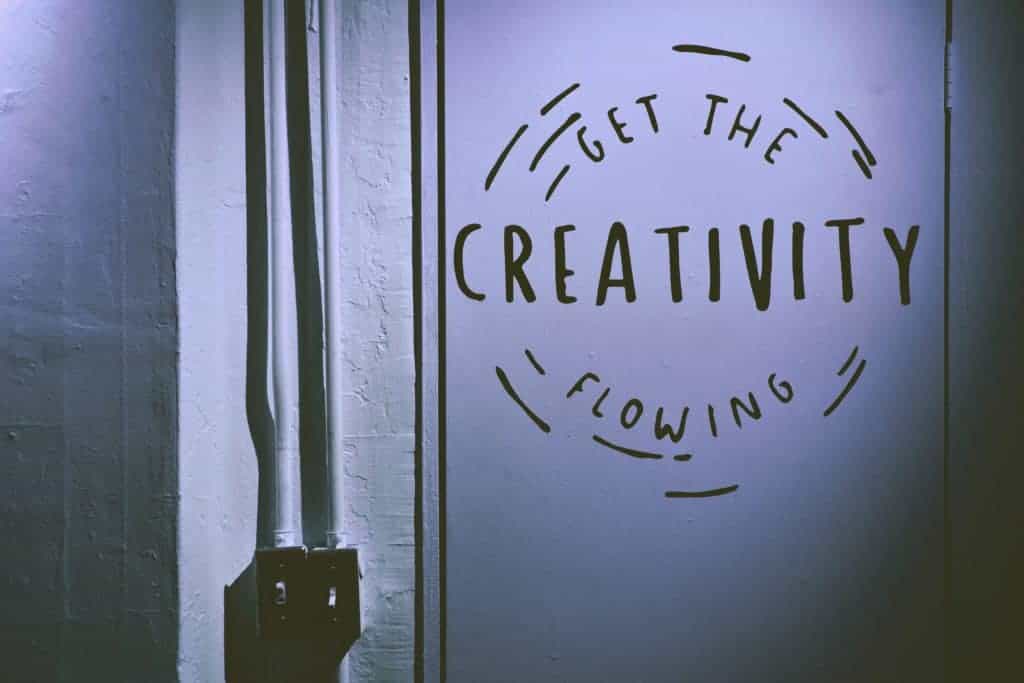Being stuck is frustrating. And because of that, today I’ll help you unstuck your creativity and back to creating awesome tracks!
The Coronavirus situation locked us at home and took going out away from us, which showed me how important some things are to our creative flow. Although I don’t believe in “Writer’s Block”, I’m definitely a believer of being creatively stuck and how that feels frustrating to our creative lives, which can happen to anyone due to a large amount of reasons
Therefore, today we’re exploring 6 ways to unstuck your creativity and get back on track to creating awesome melodies. Here’s what we’ll talk about today:
- Defining Creativity
- The Corona Situation
- Everything is a Remix
- Creativity as a Muscle and a Habit
- Create Crap Every Day
- Take Breaks
- Get Out of Your Comfort Zone

Defining Creativity
“Creativity is a combinatorial force: it’s our ability to tap into our ‘inner’ pool of resources – knowledge, insight, information, inspiration and all the fragments populating our minds – that we’ve accumulated over the years just by being present and alive and awake to the world and to combine them in extraordinary new ways.” — Maria Popova, Brainpickings
In my point of view, creativity is your ability to associate your past experiences with new experiences/inputs, forming new connections in your brain. At the same time, if you’re not putting them to use, you’re not acting creatively, so I consider the application of this creative thinking as part of the process as well. Summing them all, you have my four pillars of creativity: association skills, past experiences, current experiences, taking action.
The Corona Situation
In this new Corona scenario, we’re all locked at our houses, not really going out for anything, some even working from home and not really having social interactions or other life experiences we were so used to.
If we take a look at the pillars of creativity, we’re severely affecting our ability to generate new experiences. Everything that we used to do that refreshed our minds every day with new information is now severely limited because of the lockdown. How can we overcome this?
Tip #1 to overcome this is doing stuff that you rarely do. For example, I’ve been watching a Netflix series called Abstract, which talks about design and creative process, and it’s something I rarely do. The main reason I’m watching this is to bring additional sources of input since some of the current ones are shut down. In addition, it’s a great opportunity to put myself in the creator’s shoes and reimagine his creative process in my situation. Therefore, besides breaking the habit, we’re developing a new point of view, which can enhance your creative process and your creativity.
Lastly, anything can work. Watching a movie you’ve always wanted but never had the time, listening to a type of music you’d never listen to… Anything that could break your habit and make you think how to develop a creative process.
Everything is a Remix
Armin Van Buuren sampled “One, Two, Freddy’s Coming for You” on his song Turn it Up (compare it here). One More Time by Daft Punk sampled “More Spell on You” (compare it here). Above & Beyond sampled Brian Eno on “Good For Me” (check it here). Sample appears at 0:17 (and throughout) on Above & Beyond – Good For Me and at 0:09 on An Ending (Ascent) – Brian Eno:
And Brian Eno’s track:
In addition, Hans Zimmer sampled an 1899 composition from Edward Elgar in the soundtrack of Dunkirk (comparison link). Nothing Else Matters by Metallica sampled Tapping into the Emotional Void by Excel (comparison), who sampled YYZ by Rush (comparison). And the list goes on and it applies not only to music…
I could go on and on with this list and put musicians originality to a test, but all musicians are influenced by the songs they listen to. It’s one thing if you’re copying the structure just shifting the key, as Daft Punk has done it for some of their tracks, and it’s another thing if you’re creatively rearranging it, like Daft Punk has also done in One More Time.
I was recently talking to a great friend of mine, Taylor Torrence, and he wrote “One thing I have been doing recently is making sure if I’m referencing, that I’m referencing MANY tracks. Previously I’d only reference a few, and, at times, I’d get too close to the actual musical idea. They say if you take an idea from one guy, you’re just copying. If you take ideas from 100 people, you’re original”, and that’s tip #2. You can get a bit of this idea in this post about arrangement.
It doesn’t matter if you get your melody from a midi pack or from a track you really liked, but if you change it, it is not only more “original”, but also makes it harder to be discovered. Listening to One More Time, Daft Punk rearranged it a completely different way from the original, and that is what makes this track brilliant and as original as More Spell On You. Madeon did another good example of how rearranging existing ideas can be equally original:
As William Ralph Inge would say, “Creativity and originality are undiscovered plagiarism“. Lastly, you can watch the full movie that inspired this block over here:
Creativity as a Muscle and a Habit
Creativity should be a habit to all of us, but sometimes it is not. Talking to a lot of producers, our creative process goes like this: you finish what you were working on and then you go on a creative sprint, trying to find the next progression for your next piece of work. We find the next idea and dive back into the execution mode, only returning to creative thinking when we end what we’ve found.

Since some projects take a long time, we can stay without thinking creatively for a long period, but then we expect creativity to be right there when we need it. The problem is that when we go back to the creative process, sometimes we’re not fully “fit” to create.
Let’s think about running. Your goal is to run 10k, and you start by running 3k. Next day, you run 5k. Next, you run 7k, and so on. You run the 10k you wanted, but then you stay three months without running. Will you run the 10k right away? Maybe… but it will be way harder than when you were fit. You’ll need to warm up again and work your way up. Well, creativity is the same.
Tip #3 is you have to make creativity a habit in your schedule. Think of it as a muscle that you have to grow and keep it fit. Therefore, you got to work it out it at least two/three times a week. For example, do short 1hr brainstorming sprints every week and stay consistent with it so you’re thinking creatively every week. Schedule it and block your agenda for that since it will help you stick with this habit! Doing this, when the time to create is back, not only will you have a pile of ideas waiting for you, but it will come easier to you as well.
Create Crap Every Day
Title of Twyla Tharp’s book, creativity should be a habit of ours and not disconnected moments of creative sparks, but the latest being what we mainly do.
Let’s say you want to swim 10k. To make this possible, you start with swimming 1k. The next day, you go to 2k, and you keep going further everyday until you reach your goal. It’s not something that you just get in the pool in bam, 10k, next. In the first day, specially, the result you’ll deliver is really far from what you actually want, but it’s something that you need to reach what you want.
After practicing for some day, you’ll reach the goal. If, however, you had an event which left you intentionally, or not, out of the pool for 15 days, don’t expect to be as sharp as you were when before you left it. With music, it is the same process.
After diving deep into creating two tracks at the same time for the last 15 days, don’t expect to be as sharp as you were 15 days ago. You will need to readapt as your creativity has been impacted due to the lack of practice and, therefore, you’ll need to practice a bit more until you get there.
Tip #4 is that you need to be creating something new every week. You don’t even need to use it, you don’t even need to like it, you’re just practicing to get your creative flow back. You should build your creativity as a habit, not a spark. Real creatives don’t have to wait for the spark to come, they seek it, and it comes naturally to them since being creative is part of their routine. Lastly, and one of my favorite quotes “To make something awesome, you must be willing to make crap”.
So, sit back and try to create. If it doesn’t work today, it’s fine, try again tomorrow, and the day after, and the day after. The more fluent you start becoming, the less amount you’ll have to practice to keep your habit sharp.
Take Breaks
“Current neuroscience research confirms what creatives intuitively know about being innovative: that it usually happens in the shower. After focusing intently on a project or problem, the brain needs to fully disengage and relax in order for a “Eureka!” moment to arise. It’s often the mundane activities like taking a shower, driving, or taking a walk that lure great ideas to the surface. Composer Steve Reich, for instance, would ride the subway around New York when he was stuck.”
Most often than not, when we take a break to decompress from our recent work is when you can listen to that TV commercial that will spark something in your mind that was missing. Have you ever laid down in bed and BAAM! You need to find your recorder because something popped into your mind, and that’s TIP #5.
Taking breaks makes you think outside of your current box. When creating, we get so focused on the task at hand, and focusing our attention narrow our possibilities to see the big picture or to see something that we’re not seeing yet. Taking breaks will make your mind wonder over different subjects, and that’s when you can spark something new.
Taking breaks to avoid ear fatigue. Specially if when doing technical work, like mixing and mastering, we become so focused on the technical side of the creative process that we either bias our ears or fatigue them. Taking hour long breaks helps our ears to refresh and then we can listen to the same song with different perspective and with a relaxed ear.
Taking breaks to stay focused. A study shows that after long periods of focused attention, our overall attention span declines and, consequently, so does our performance levels. Taking a break is an excellent way to briefly deactivate our brain and let it rest for a bit, which will help it keep focus and performance levels high when reactivated.
Taking breaks to chill. Once in a while, it’s important to your body to relax and do nothing. We need this to reset our minds I definitely recommend you to do this to avoid burning out. If you want something different, watch this Netflix series called Abstract (I recommend Olafur Eliasson’s episode).
Get Out of Your Comfort Zone

A good way to enhance your creativity is simply by changing your environment. Creativity = Inputs + Past Experiences + Associative ability + Action. Changing your environment would affect your inputs in a way due to the new scenario, but mostly it will help your associative ability since you’re putting your brain to work on something you’re used to in a new place.
I can guarantee to you that it will be strange and it will feel weird, but this feeling is your brain getting out of its creative comfort zone and telling you “this is not normal”, and that’s when creativity can happen.
Let’s say you always create in your bedroom, then go to Starbucks and create something there. If you always use your midi keyboard to produce, then create like Deadmau5 and paint the notes in the piano roll. If you always start a track by doing the break, start it by doing the intro, which normally is the last thing I would do.
Tip #6 – When you get out of your comfort zone, you’re making new associations and collecting data, even if that doesn’t work. Let’s say you went to Starbucks to create something. You have a scenario where it was too noisy so you couldn’t focus, for example or it inspiring and you created a melody that your really loved.
If it worked, well it worked, and you started something new. If it didn’t, you collected data of what doesn’t work and, for the future, you don’t need to try that again. Either way, it helped you get out of your comfort zone and you ended up either knowing something to avoid or to do more, so it helped you grow.
———————
Now it’s your turn
There you have it: my list of 6 tips to keep your creativity flowing. If you want to keep on going, you can read more in this post on how to break Writer’s Block.
Now I’d like to hear what you have to say:
Which tip do you see yourself implementing first?
Let me know in the comments below!